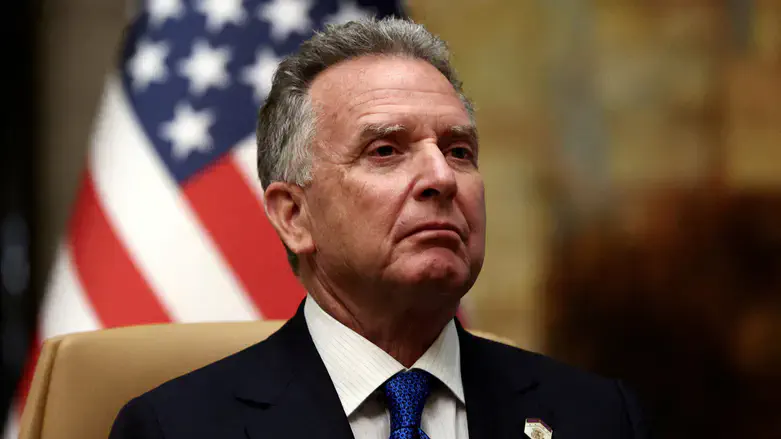
The Trump administration delivered a written proposal for a nuclear deal to Iran during the fourth round of negotiations held this past Sunday, sources with direct knowledge confirmed to Axios on Thursday.
This marks the first instance since the talks commenced in early April that White House envoy Steve Witkoff formally presented a written offer to Iranian counterparts.
Iranian Foreign Minister Abbas Araghchi promptly conveyed the proposal to Tehran for urgent consultations with Supreme Leader Ali Khamenei, President Masoud Pezeshkian, and other senior officials, according to Axios. Speaking on Tuesday in Saudi Arabia, US President Donald Trump characterized the offer as "an olive branch" extended to the Iranians, yet he underscored the immediate urgency of the situation, stating, "this is not an offer that will last forever. The time is right now for them to choose."
Behind the scenes, the current proposal follows earlier exchanges, the report stated. In the initial round of talks, Araghchi had presented Witkoff with a written document containing Iranian proposals, which Witkoff deferred, opting to prioritize building rapport. During the third round in late April, Araghchi again provided an updated document detailing Iranian ideas for a nuclear agreement, which Witkoff subsequently accepted. A US team of experts then meticulously reviewed the Iranian document, dispatching a list of questions and requests for clarification, to which the Iranians responded while also posing their own inquiries. Concurrently, Witkoff and his team meticulously crafted the US proposal, outlining the Trump administration’s parameters for an Iranian civilian nuclear program and establishing stringent requirements for monitoring and verification.
A key aspect of the US proposal, now put in writing, is its clarification on the extent to which Iran would be permitted to enrich uranium under a potential deal. This stands in contrast to previous public statements from Witkoff and other officials that had offered varying perspectives on the matter.
Adding to the developments, senior Khamenei adviser Ali Shamkhani informed NBC News on Wednesday that Iran is prepared to sign an agreement that would permit only low-level uranium enrichment for civilian applications, necessitate the surrender of highly enriched uranium stockpiles—with full international verification—in exchange for the complete lifting of sanctions.
Last Wednesday, Witkoff briefed the UN Security Council, describing the US proposal as "elegant" and "very big," though he cautioned that further progress in the negotiations remained essential, according to meeting minutes shared with Axios and corroborated by another source. The proposal was formally handed to Araghchi on Sunday in Oman. A State Department official declined to comment on the matter.
Witkoff expressed encouragement following the results of the fourth round of talks, which concluded the day prior to President Trump’s departure for his Middle East tour. A fifth round of negotiations has not yet been scheduled.
In a briefing with reporters on Thursday, Trump affirmed that the US is nearing a deal with Iran, underscoring the "very serious" nature of the ongoing discussions. "They agreed to the terms...they are not going to make nuclear dust," he declared.
Trump has several times indicated he believes brokering a nuclear deal is possible, though he has also cautioned that "the window is closing."
Last week, Trump said that Iran has a choice when it comes to its nuclear program: Blow up its nuclear facilities peacefully or blow them up viciously.
Iran is currently enriching uranium to 60% purity, far exceeding the 3.67% limit stipulated in the 2015 Joint Comprehensive Plan of Action (JCPOA), but still short of the 90% threshold needed for weapons-grade material.

